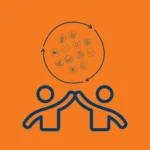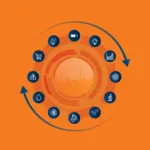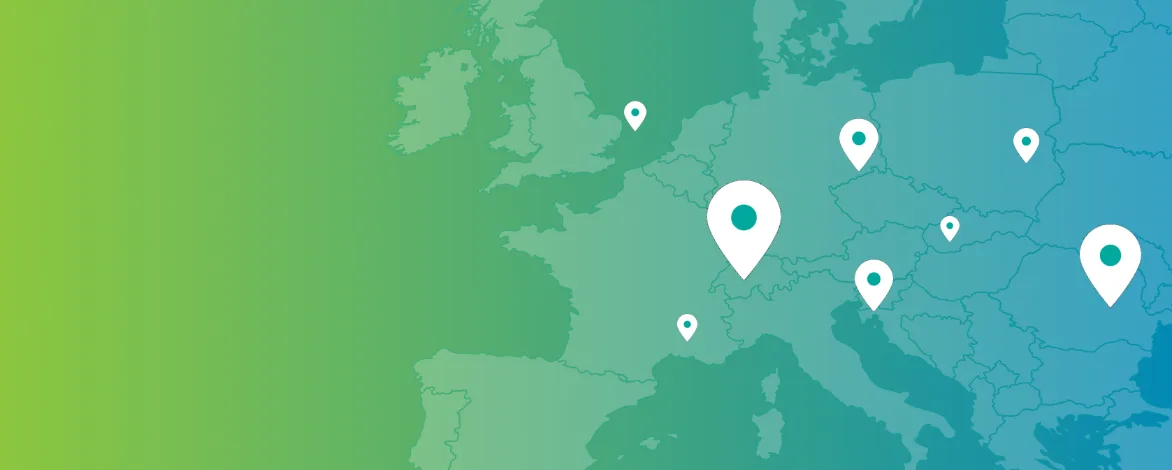Chemical industry snapshot
A strong industry at a gateway to Europe
The Netherlands has Europe’s third-largest chemicals industry. The combination of Rotterdam harbour, good infrastructure, top universities and qualified personnel has attracted many of the world’s largest chemical companies.
A leading employer
Chemicals turnover in 2022 was €87 billion. Our industry employs 45,000 people in more than 400 companies. It’s the second-largest industry in the Netherlands.
In the global vanguard
In basic chemistry, biotechnology, food ingredients, coatings and high performance materials, the Netherlands is among the world’s top players. The chemical industry provides almost 16% of the Netherlands exports.
Driven by innovation
Our chemical industry is a leading innovator, investing €1 billion a year in research and development.
Networked with neighbours
The combination of Rotterdam harbour and pipelines to nearby chemical production centres in Belgium, Germany and northern France ensures the Netherlands industry forms part of a strong cluster in Northwest Europe.
Clustering in the regions
The Netherlands is relatively small and manageable country with outstanding roads, rail links, waterways, telecommunications, and energy supply pipeline networks linking production regions.
The main clusters are:
Rotterdam-Moerdijk
Pernis, Botlek, Europoort and the Maasvlakte, Dordrecht: the Rotterdam-Moerdijk chemical cluster is enormous. It comprises more than 120 industrial companies, with the focus for the chemical industry in the Botlek and Moerdijk areas.
With 45 chemical companies, five oil refineries and Europe’s largest concentration of bio-based factories, there are many parties to work with. Good logistics (pipelines, port, Betuweroute, Rhine and A15) also make it easy to distribute raw materials and products. Moreover, Rotterdam has a strong ecosystem for innovation.
South Limburg/Chemelot
Chemelot is much more than just an industrial estate in South Limburg. This unique chemistry and materials site is of strategic importance to the Netherlands (and beyond), because this chemistry is the beginning of many economic value chains. Fertilizer, clothing and medicines, it cannot exist without the raw materials produced in chemistry. The Brightlands Chemelot Campus is located next to the industrial park. This campus is home to innovative start-ups and research and educational institutions focused on chemistry and materials.
North Netherlands / Delfzijl/Eemshaven
Delfzijl, Emmen and the intermediate area together form Chemport Europe. Emmen is home to leading companies such as Teijin and DSM. In Delfzijl, leading companies produce basic chemicals for industry. Delfzijl represents 15% of the chemical production in our country.
Emmen is considered the cradle of polyester and there is a strong focus on its (mechanical and chemical) recycling. There is intensive cooperation with other companies on a biobased and circular economy.
Zeeland/West-Brabant
Zeeland /West Brabant industrial cluster has a special character. Not only does it have its own partnership with Smart Delta Resources (SDR), the region is also cross-border.
Geographically due to the fact that the SDR region covers three provinces (West Brabant, Zeeland and East Flanders) and two European Member States (the Netherlands and Belgium), and intrinsically due to the cross-border port of North Sea Port and various programmes. The value chains, priority programmes and projects are intertwined, across borders.
Noordzeekanaalgebied
The North Sea Canal chemical cluster is developing strongly and is focused on sustainability. You will find both big names and young dogs here. There is no shortage of knowledge and good ideas, with two universities and the Science Park nearby. The availability of sustainable energy, organic waste and feedstocks also makes things easier.
Because there is no huge infrastructure, innovation can go fast and there is plenty of room for niches. Amsterdam thinks big, but tackles it through (globally scouted) start-ups and scale-ups.
How are we doing?
Strengths
- A key part of Europe’s biggest cross-border chemical cluster
- Well-educated labour force
- Stable political and social climate
- Served by the port of Rotterdam
- Rising productivity has reduced unit labour costs
Challenges
- High energy costs
- An ageing workforce- tackled by public-private skills planning
Our contribution to a competitive Europe
Building research capacity
Education, science, knowledge institutes and industry are collaborating on research to accelerate innovation.
Opportunities for growth
The chemical industry is expected to transform through more efficient use of raw materials, a shift from fossil inputs biomass, bio waste and other resources. Free trade, improved energy efficiency, raw material diversification, focused R&D, sustainable innovation and facilitating legislation are needed to help achieve this goal.
Supported by government policies
The chemical industry is among those in which the Netherlands achieves world class excellence, and benefits from supportive government policies.














